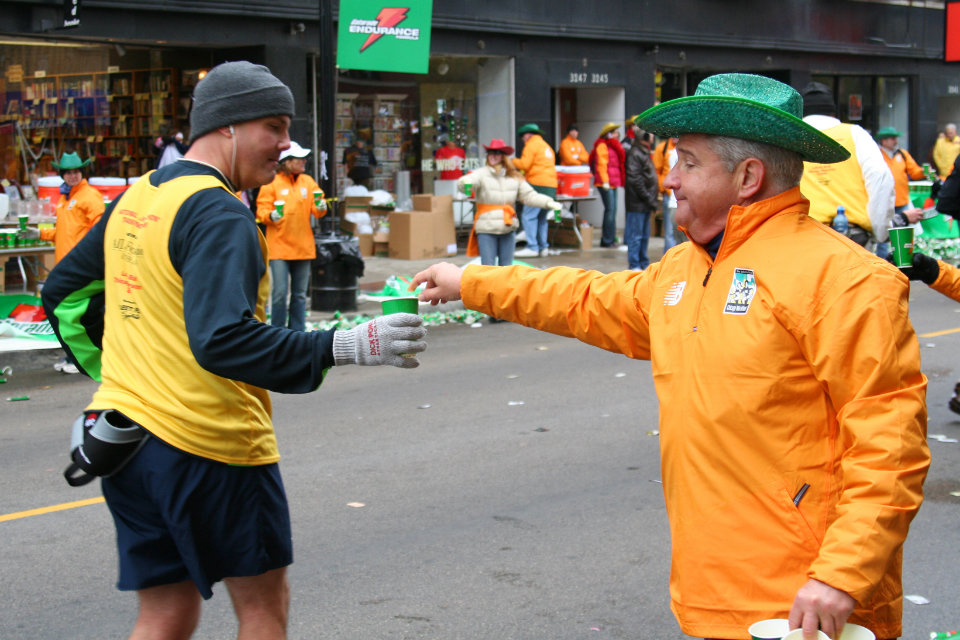You are about 2 weeks away from the big day and almost all the hard work is behind you. The months of early morning long runs and late night interval sessions should have you feeling confident about putting in a good effort on race day.
These tips on the peripheral aspects of running a marathon will help you nail it.
Tip #1: Determine Your Taper
A well structured taper is essential to run a good race. It gives your legs a chance to rest fully and adapt to the kilometers that have put into them when training. The trick is to do just enough to keep your body systems open, but not enough to build in any more fatigue.
It is not an excuse to do nothing. Carbo-load is necessary! There are many factors that will determine your taper- training load, recent race history, recovery from injury, to name a few.

As a rule of thumb, cut down on total weekly volume to 75%, 2 weeks out and then again to 50% in the 1 week leading up to race day. Retain a touch of speed work and intensity during the shorter weekday runs to keep your legs fired up. It should feel as if you’re teasing your legs.
Your final long run before the marathon should be kept to a very easy pace, which should not exceed 90 minutes. As you get more and more rested, you will feel your energy levels and excitement grow as race day approaches. This is a sign that you are tapering well. Save it for the big day!
Tip #2: Visualising Race Day
Leading up to the race, spend some time thinking about the actual race day. Put yourself in different points and situations throughout race day. This will help you to prepare well when race day comes round.
For example:
- Pre race: How am I getting to the start line? What time do I want to be there? How am I going to carry my gels?
- Race day: How am I going to pace myself? How am I going to feel at the halfway point? What is my nutrition plan like? What happens when I hit the ‘wall’? How am I going to respond?
- Post Race: How am I getting home? Where can I get a snack after the race? How do I recover properly from a huge effort like a marathon?
Tip #3: Gear Planning
Planning your outfit in advance is essential. You should be in the most comfortable gear, perhaps something you have worn during one of your workouts. Think about how you will be carrying your gels or if you require a new pair of kicks. Don’t leave this till the last minute because you need to train in them beforehand.
Tip #4: Nutrition Storage
Read the labels. Know what you will be putting in your body as fuel for your big day. Try to get at least 150 calories in per hour every hour after the first hour you are running. You can get this from sports drinks or gels. This works out to about 1 gel every 40 mins. Larger athletes will need more than this, smaller athletes less. Remember that it is important to wash your gels down with a sip of water because it helps with absorption.
If you sweat excessively (e.g. sweating through your shoes), it is essential to replace the lost electrolytes as the race wears on. Excess loss of sodium through sweat will affect your muscles contractility and is thought to lead to cramps. Replace these with salt capsules or rehydration tablets or extra sodium gels.
Try sucking on a Nunn tablet- I find this works well. When you’ve had enough, and you will know when, simply spit it out. On top of sodium, look for products with magnesium and potassium in them as well.
Aim to take in small to moderate amounts of water at regular intervals at the aid stations. In most cases a few mouthfuls is often enough. Do not wait until you are very thirsty and gulp down a whole litre! This will disrupt the concentration gradients in your stomach and may lead to bloating- a very uncomfortable situation when running.
Tip #5: Pacing Yourself
Start easy! The adrenaline and atmosphere at the start will have your heart rate 10 beats above normal and raring to go, but hold back. No matter how good you feel, do not sprint off at the start.

Take a few kilometers to let your body find its natural rhythm – and then back it off a little more. Yes! The energy you put aside in the first half of the race will pay big dividends in the closing stages of the run. Try to get the first 10 km out of the way as effortlessly as possible.
If you start easy, you should be able to reach the halfway mark with no problems. This is the time to make an assessment:
- Feeling fantastic? Showing no signs of fatigue and still raring to go?
Then you could increase your effort a little. - Feeling OK – no problems, nutrition on track, legs still in good shape, relatively fresh.
Maintain the current effort because a marathon has a way of biting back after 30km!
Running a marathon will never be a simple, painless stroll in the park. At some point, you will have to grit your teeth and man-up! Whether this happens with 10km to go or 500m before the finishing line, it is important to stay strong and focused, hold your form and run tall. Nothing else matters!
Tip #6: Enjoy Your Race
Enjoy putting your body to the test! Relish the fact that you are able to run a marathon- that in itself is special. Remember everyone that has supported you and be thankful for them.
Encourage those having a tough time with a smile or a few kind words. Such gestures goes a long way!
Things to Do the Day Before a Marathon
- Don’t overeat at dinner the night before a race. Avoid heavy sauces, high-fat foods, high fiber, or too much protein. It’s recommended to stick with familiar foods before your race so you don’t get an unpleasant surprise.
- Drink plenty of water the day before a race. You can check if you are hydrated when your urine is light yellow. As a runner, you should drink more water especially just before a marathon. The Institute of Medicine recommends that athletic men drink 104 ounces of water (13 glasses) and athletic women drink 72 ounces (9 glasses) per day.
- Rest the day before your marathon or half-marathon. If you wish to run, do with a very slow, 20-minute run to shake out your legs and calm your nerves.
- To beat pre-race anxiety, you can organise every detail so you won’t be stressed about anything on race day. Layout your clothing and gear the night before your race and pack the essential items such as race-bib, race fuels, anti-chafing tape, GPS watch etc.
- Avoid wearing new clothes or shoes on race day to avoid any unwanted issues.
- To mentally prepare for the race, you can check out the course map in your race pack. Identify the points you will need to conserve energy and strategise your pace.
- Avoid caffeine and alcohol, both of which can cause dehydration and mess up your sleep.
- Sleep early and set your alarm clock so that you arise early. Make sure you have a conducive sleeping environment.
Remember to listen to your body at the marathon race, nothing is more important than your health and safety. When you run past the finish line, you can enjoy the fruits of your labor.





